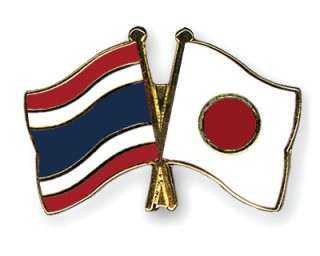Loading
Search
▼ Thailand and Japan to lead Asia-Pacific equity sell-off
- Category:Other

FAST FT
Asia-Pacific markets were in a broad sell-off after another torrid session for the rouble convinced Russia's central bank to drastically push up interest rates.
Russia's Central Bank raised its main interest rate from 10.5 per cent to 17 per cent in the middle of the Moscow night, just five days after the last rate rise and hours after the rouble suffered its worst drop since 1998.
The central bank said it was necessary "to limit the risks of devaluation and inflation," after the rouble - already at a record low against the US dollar - fell more than 10 per cent on Monday. It also warned that Russia's economy could contract by as much as 4.7 per cent next year if oil prices remain at $60 per barrel.
The move, called a "last ditch" effort by traders and analysts in New York, added further selling pressure to global equities following a weak overnight session wherein the S&P 500 tumbled 0.6 per cent to 1,989.6 points.
Lower oil prices are seen as a good thing for global consumer spending but there are broader concerns that the decline from above $100 a barrel in June may signal receding demand and suggest the global economy is slowing.
Tokyo's Nikkei 225 fell 1.9 per cent to a five-week low, after losing 1.6 per cent on Monday. Hong Kong's Hang Seng Index fell 0.7 per cent to its lowest since late June. Sydney's S&P/ASX 200 slipped 0.6 per cent, a sixth consecutive fall, to a two-month low.
In late-morning Asia trading Brent crude prices continued to slide 0.4 per cent to $60.83 per barrel. Nymex-traded West Texas Intermediate oil futures fell 3.3 per cent overnight to $55.91 per barrel.
Emerging market currencies in the region continued to experience selling pressure.
Indonesia's rupiah was the worst performer, falling another 1.5 per cent to set a new 16-year low. Investors are concerned that as the US Federal Reserve normalises monetary policy, Indonesia will suffer capital outflows. The yield on its 10-year bond has already ratcheted up to 8.49 per cent from just 7.69 per cent at the start of this month.
Similarly, the Thai baht lost 0.3 per cent to 33.06 per dollar, its lowest valuation since January. Thailand's stock market opened 3.1 per cent lower, on track for a sixth day of losses.
The "haven" yen, by contrast, gained 0.8 percent overnight and is trading at 117.6 per dollar, near a two-week high. That reflects risk aversion and also hurts Japanese markets by reducing exporters' profits.
The only equity market rising on Tuesday is the Shanghai Composite. It's up for a third straight day, gaining 1.1 per cent. It's still nearly 3 per cent below the four-year peak last week.
New economic data for the region was mixed and can't explain why Chinese stocks are up.
HSBC said its "flash" estimate of China's manufacturing sector produced a reading of 49.5 in December, marking the first contraction in seven months.
"The manufacturing slowdown continues in December and points to a weak ending for 2014," said Hongbin Qu, economist at HSBC. "The rising disinflationary pressures, which fundamentally reflect weak demand, warrant further monetary easing in the coming months."
In Japan, the Markit/JMMA preliminary purchasing managers' index edged up to a reading of 52.1 in December, marking a seventh month of modest growth.
- December 17, 2014
- Comment (0)
- Trackback(0)

